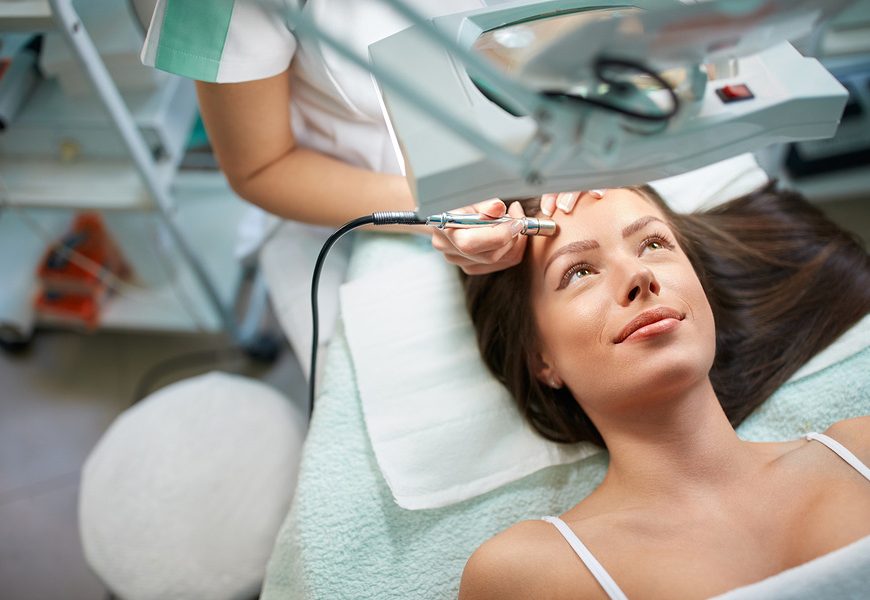Esthetics is a dynamic and growing field within the beauty industry. It involves skincare, makeup artistry, body treatments, and other beauty-related services. For those passionate about helping others look and feel their best, attending an esthetics school is the first step toward building a successful career. In New York, a hub for beauty and fashion, there are many schools offering esthetics programs. This guide will explore what you can expect when pursuing your education in esthetics in New York, how to choose the right school, and what career opportunities await you once you graduate.
What is Esthetics?
Esthetics is the science of skincare. It includes performing facial treatments, managing skin health, and applying makeup. In addition to skincare, estheticians are also trained in hair removal, body treatments like wraps and scrubs, and massage therapy. With a growing demand for beauty services, estheticians are sought after in spas, salons, medical offices, and even luxury resorts.
Esthetics involves both artistic and scientific components. Professionals need to understand skin anatomy, learn how to use various skincare products, and stay updated on the latest beauty trends and techniques. Therefore, a quality esthetics school provides a well-rounded education that covers theory, practical experience, and client interaction.
Why Choose Esthetics as a Career?
Esthetics offers various benefits, making it an appealing career choice for many. First, it is a field with steady demand. As people become more conscious of self-care, beauty and skincare services continue to grow. According to the U.S. Bureau of Labor Statistics, employment for skincare specialists is expected to grow 17% by 2029, much faster than the average for other occupations.
Second, esthetics offers a relatively flexible schedule. Many estheticians work part-time or on a freelance basis, allowing for work-life balance. The field also provides opportunities for advancement, from becoming a spa manager or salon owner to specializing in medical esthetics. This flexibility and room for growth make esthetics a viable and rewarding career.
What to Expect from an Esthetics School in New York
Esthetics schools in New York are equipped to provide both comprehensive education and hands-on training. Whether you are just starting or looking to expand your knowledge, these schools offer various programs tailored to different needs. Here’s what to expect during your time in esthetics school:
1. Accreditation and Licensing Requirements
Before enrolling in any esthetics school, ensure that the institution is accredited by a recognized agency. Accreditation is crucial for ensuring that you receive quality education and are prepared for licensing exams. In New York, estheticians must pass a state exam to become licensed to practice. Accredited schools prepare students for both the practical and written portions of this exam.
To become a licensed esthetician in New York, you must complete a state-approved esthetics program, which typically includes around 600 hours of coursework. Once you graduate, you will need to pass both a written exam and a practical exam to earn your license.
2. Courses and Curriculum
Esthetics schools in New York provide a range of courses, typically divided into theory and hands-on practice. Some of the topics you can expect to study include:
- Skin Anatomy and Physiology: Understanding skin structure is essential. This foundational knowledge is key when learning how to properly treat different skin types.
- Facials and Skin Treatments: You’ll learn how to perform facials, including deep cleansing, exfoliating, and moisturizing techniques.
- Hair Removal: Students learn different hair removal techniques, including waxing, threading, and sugaring.
- Makeup Artistry: Many esthetics programs offer courses in makeup application for special occasions, day-to-day looks, and even theatrical makeup.
- Chemical Peels: You’ll gain hands-on experience in applying chemical peels to exfoliate and treat various skin conditions.
- Microdermabrasion: This technique helps to reduce the appearance of fine lines, acne scars, and hyperpigmentation.
- Safety and Sanitation: Estheticians must adhere to strict hygiene practices. You’ll learn how to properly sanitize your tools, work area, and protect clients.
Hands-on practice is a key component of your education. You will perform treatments on models under the supervision of your instructors. This allows you to perfect your technique before entering the workforce.
3. Duration and Flexibility of Programs
Esthetics programs in New York typically last between 600 to 1,200 hours, depending on the school and the program you choose. Full-time students can expect to complete their programs in about 6-12 months, while part-time students may take up to 18 months to finish their education.
Many esthetics schools offer flexible schedules to accommodate working individuals. For example, some schools offer evening and weekend classes for students who need to balance education with work or other commitments.
4. Career Services and Networking
Reputable esthetics schools often offer career services to help students transition into the workforce. This can include resume writing, job placement assistance, and networking events. Some schools also partner with local spas, salons, and beauty clinics, providing students with internship opportunities to gain real-world experience. Networking is also an essential part of your education. Building relationships with instructors and fellow students can open doors to job opportunities.
How to Choose the Right Esthetics School in New York
Choosing the right esthetics school is an important decision that will shape your career. Here are some factors to consider when evaluating schools:
1. Accreditation and Licensing
As mentioned earlier, ensure that the school is accredited and that its programs meet the state’s licensing requirements. This will make it easier to find a job after graduation and ensure the quality of your education.
2. Reputation and Reviews
Do your research on the school’s reputation. Check online reviews, testimonials from former students, and ask about alumni success stories. A school with a strong reputation is likely to provide quality education and have better job placement rates.
3. Curriculum and Specializations
Consider what areas of esthetics interest you the most. Some schools may offer specialized training in medical esthetics or advanced skincare treatments, which could be beneficial if you want to work in a medical spa or dermatology office.
4. Location and Accessibility
Look for a school that is conveniently located. In New York, you’ll find esthetics schools in Manhattan , Brooklyn, Queens, and even the surrounding areas. Choose a location that works best for you in terms of commuting and convenience.
5. Costs and Financial Aid
The cost of attending esthetics school can vary significantly. It’s important to compare tuition costs, as well as any fees for supplies or materials. Many schools offer financial aid options, including grants, scholarships, and loans. Make sure to explore these options before making a final decision.
Conclusion
Attending an esthetics school in New York is an exciting step toward a rewarding and flexible career in beauty and skincare. With numerous schools to choose from, it’s important to research your options and find a program that fits your career goals and lifestyle. By completing a quality program, gaining hands-on experience, and obtaining your license, you’ll be well-equipped to pursue a variety of career opportunities in this growing field. Whether you’re interested in working in a luxury spa, advancing to medical esthetics, or starting your own business, the possibilities are endless in the vibrant beauty industry of New York.









